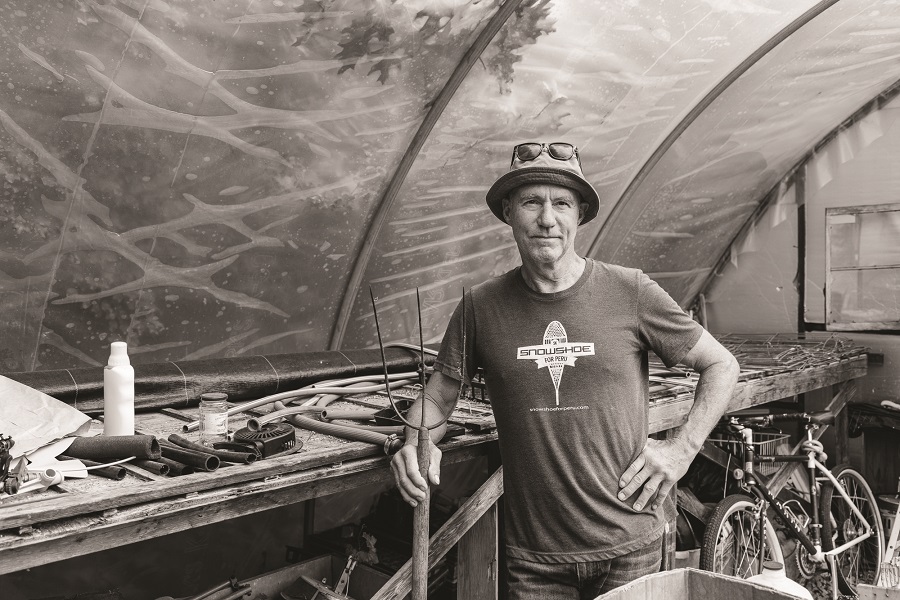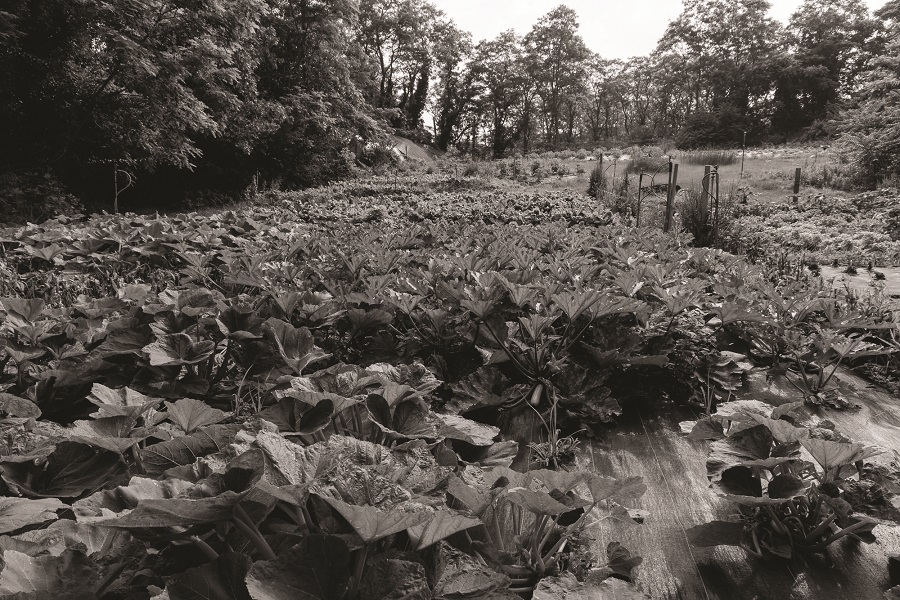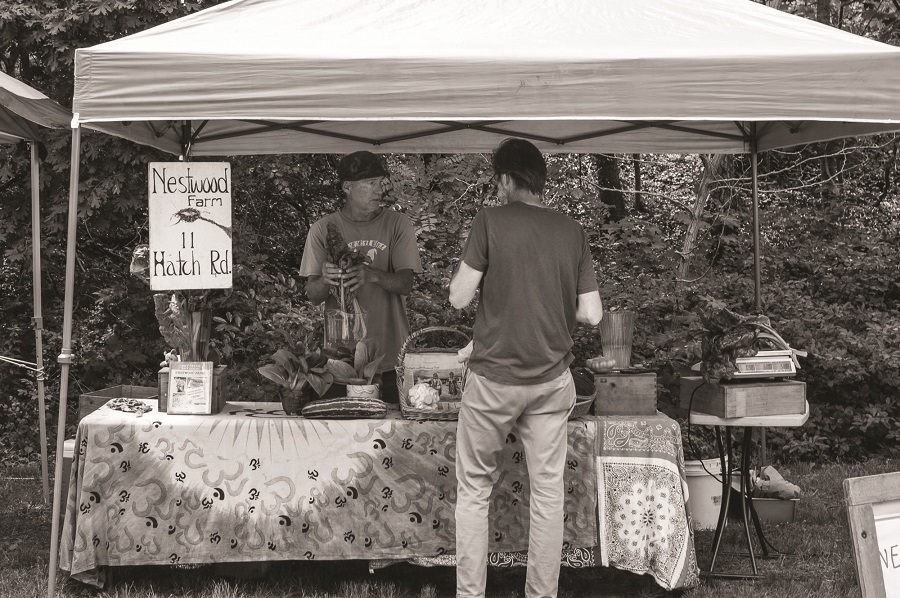Off Hatch Road in Truro, rows of crops spill down a slope and surround farmer Christopher Murphy’s house. There, at Nestwood Farm, Murphy — friends and neighbors know him as “Murph” — has grown tomatoes, eggplants, peppers, squash, lettuce, chard, kale, cabbages, bok choy, and basil on an acre and a half for the last 30 years.
His passion for planting has unlikely roots, going back to his years at Colgate University. “I was a philosophy major,” he says. “And I thought, well, what is the most important job a human being can do?”
“Growing food” was his answer.

Murphy was born in Boston and lived in Syracuse, N.Y., New York City, and Park City, Utah before circling back to Truro, where he’d spent childhood summers. And where his friend John Yingling, whose Provincetown pizza joint, Spiritus, was already an institution, offered him a job. Not slinging slices: Yingling wanted someone to come work on a garden for him.
Now, Murphy’s a regular vendor at both the Wellfleet and Truro farmers markets. But “when I started farming, I didn’t know a single thing,” he says. “And you know what? I’ve never taken a course, or anything. I just did it.”
Murphy had one crucial advantage that helped him kick off his cultivation career. Nestwood Farm is on a plot that, according to local legend, is historically fertile. “This is the longest continuously farmed piece of land on the Lower Cape,” Murphy says, asserting that it’s been farmland “from the late 1600s.”
On the Cape, having good soil makes all the difference. The biggest struggle for farmers here, Murphy says, “is that Cape Cod is one big sandbar, and if you’re trying to grow vegetables on a sandbar, you just have to keep on bringing everything in, meaning good dirt and manure.”

What that also ends up meaning for Outer Cape farmers like Murphy is that the more established they become, the better their land becomes as well. “I’ve been putting so much stuff into the soil for so long, I actually have good soil,” Murphy says.
Of course, there are still other struggles. “You don’t make a heck of a lot of money,” Murphy says. “I tell all my friends who are lawyers, doctors, whatever, ‘I make hundreds of dollars. Hundreds of dollars!’ ” But Murphy loves the slopes as much as he loves his squash. He says that as long as he makes enough at the farmers markets to be able to leave the Cape and spend the winter skiing, he’s happy.
The stakes were low when Murphy first started. He had been commissioned to turn half an acre in his friend’s back yard into a garden. “The farming that I did was just for us,” says Murphy. “That land wouldn’t have been farmed if I wasn’t there.” Growing crops wasn’t his main hustle, either. Other jobs, including bartending at Terra Luna, helped make ends meet.
It was 15 years later, when the Yinglings bought another acre of land and Murphy started selling veggies at the newly formed farmers markets, that Chris Murphy became Farmer Murph.
He built a house on the land “with my own two hands,” he says. He credits his success to his tenant-farmer-like situation, the chance to farm both for the landowners privately and for his own income at the markets. The arrangement is important because “us normal people can’t afford an acre and a half of land in Truro,” he says.

Murphy has watched the Outer Cape’s farmers markets improve with time, just like his soil. “Fifteen, 20 years ago, there were no farmers markets out here,” Murphy says. “When they said, ‘We’re going to start a farmers market in Truro,’ I was skeptical. I was like, who’s going to show up? What are we going to have, five vendors?”
And a few years later, when the Wellfleet farmers market debuted, Murphy remembers thinking “You can’t have two farmers markets, town next to town.” Now, Murphy admits, “they all do well.”
Murphy wants the crowds that flock to his stand to appreciate the effort that goes into getting them their produce. “I hope that everybody who walks into a farmers market with their baskets is thinking of that,” he says. “That the farmers are busting their butts to get good food out, and that it can be a really difficult thing.”
Despite the challenges, Murphy isn’t going anywhere. “Once I got into farming, I couldn’t get out of it,” he says. There are few things more rewarding than harvesting, he says, “and getting to say, ‘Wow, those are perfect tomatoes.’ ”
Except maybe when he goes back to Park City in the winters and his skiing companions ask him what he’s up to. “And I go, ‘I’m farming.’ ” What he loves is “just being able to say that.”
